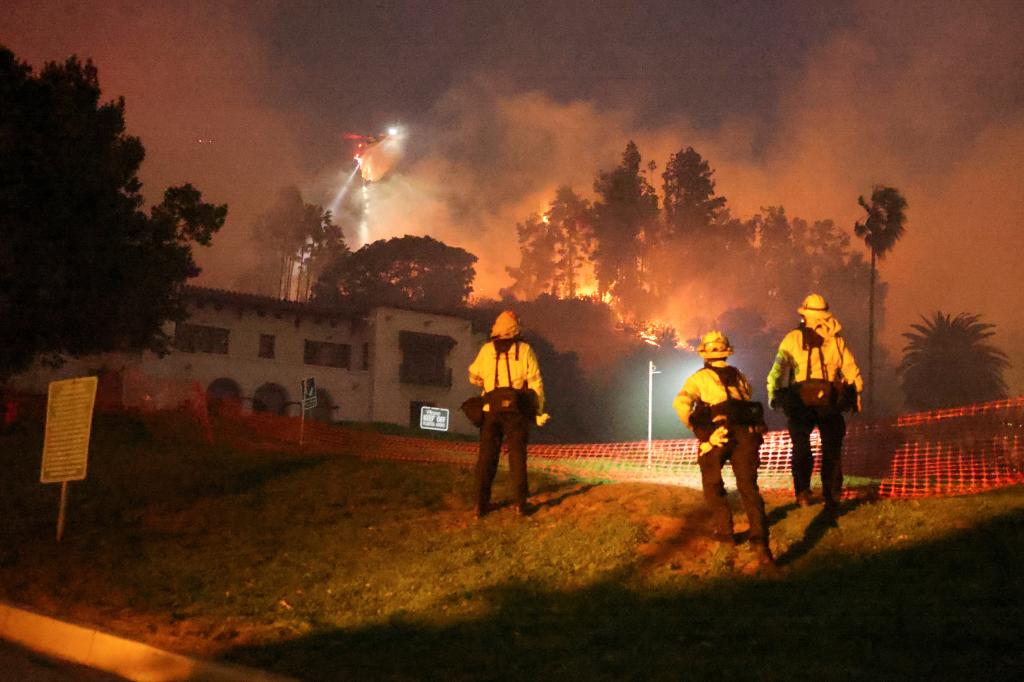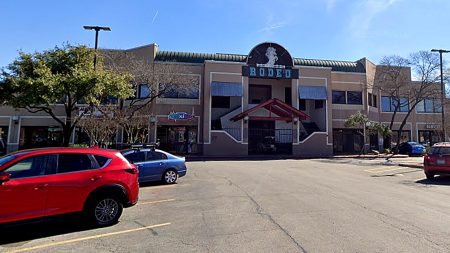The devastating wildfires raging across Southern California have not only brought widespread destruction and displacement but also the unfortunate emergence of opportunistic crime. Amidst the chaos and evacuation orders, authorities have made two arrests for looting, highlighting the disheartening reality that some individuals exploit disaster for personal gain. Los Angeles County Sheriff Robert Luna expressed his disappointment and pledged to prosecute anyone caught engaging in such criminal activity. This underscores the added burden placed on law enforcement and the emotional toll it takes on communities already grappling with unimaginable loss. The fires, spanning thousands of acres across multiple locations, remain uncontained, and resources are stretched thin as firefighters battle the flames and dwindling supplies.
The scale of the disaster is immense. Over 80,000 residents are under mandatory evacuation orders, forced to abandon their homes and seek refuge elsewhere. The toll on property is staggering, with over 1,000 structures reduced to ashes and more than 10,300 homes under immediate threat. The fires have swept through affluent areas, impacting even the homes of A-list celebrities, demonstrating the indiscriminate nature of the inferno. The impact extends beyond the immediate physical damage, as the fires leave lingering fear and uncertainty for those who have lost everything and for those still in danger zones. The emotional scars of such a catastrophic event will undoubtedly run deep within the affected communities.
The fires present a complex and evolving challenge for firefighters. The combination of dry vegetation, strong winds, and difficult terrain has created a perfect storm for rapid fire spread and containment challenges. As resources like water dwindle, the battle against the flames becomes even more arduous, requiring strategic allocation of personnel and equipment to protect lives and property. The ongoing nature of the fires necessitates a continuous assessment of the situation and adaptation of firefighting strategies as conditions change. The sheer scale of the affected area makes it difficult to gain control, and the constant threat of shifting winds creates a dynamic and unpredictable landscape for firefighters.
The human cost of this tragedy is profound. Two lives have already been lost, a grim reminder of the lethal potential of these wildfires. Authorities acknowledge that the death toll is likely to rise as the fires continue to burn and assessments of the devastated areas become possible. The loss of life underscores the critical need for effective evacuation procedures and rapid response efforts to minimize casualties. Beyond the immediate fatalities, the broader health impacts from smoke inhalation and related health issues will also need to be addressed in the aftermath of the fires. The physical and mental health consequences on those who have lost homes, loved ones, and their sense of security will require long-term support and recovery initiatives.
The arrest of looters injects a further layer of complexity into an already dire situation. While the majority of people respond to disasters with compassion and support, there are always those who seek to profit from the misfortune of others. The actions of these individuals not only violate the law but also erode the sense of community and shared hardship during a time of crisis. The sheriff’s stern warning serves as a deterrent and emphasizes the commitment to holding accountable those who exploit vulnerability. It also reflects the underlying tension that emerges in disaster zones when security and order are threatened.
The wildfires in Southern California are a devastating illustration of the destructive power of nature and the vulnerability of communities in its path. The unfolding disaster highlights the critical roles of emergency services, the importance of community support, and the unfortunate reality of criminal opportunism during times of crisis. The ongoing efforts to contain the fires, protect lives, and bring those responsible for looting to justice underscore the resilience of the human spirit and the importance of collective action in the face of adversity. The long road to recovery will require not only rebuilding homes and infrastructure but also addressing the emotional and psychological scars left by this devastating event.











